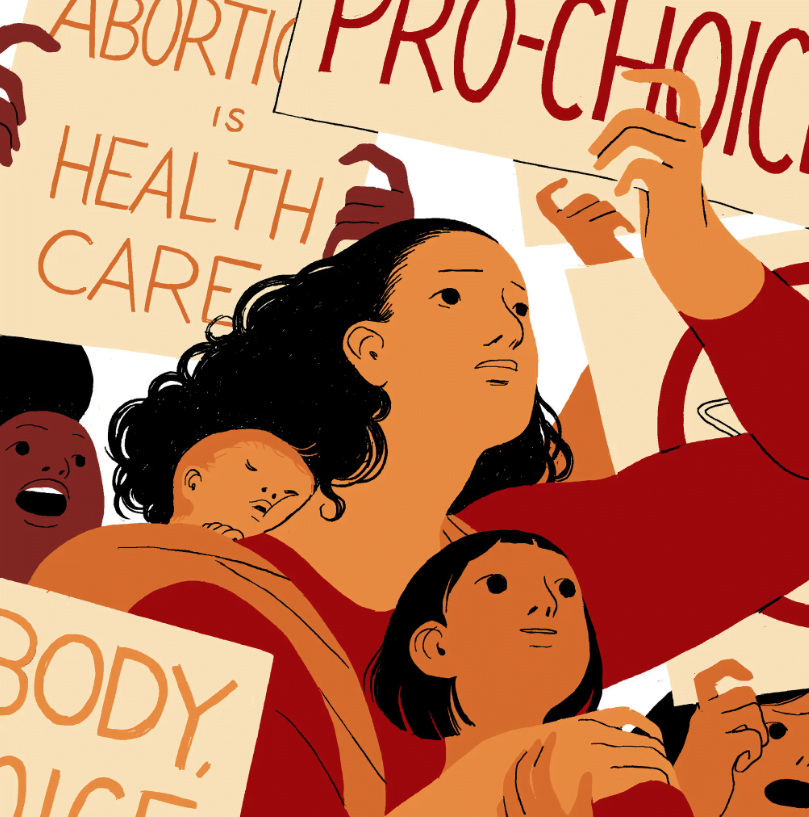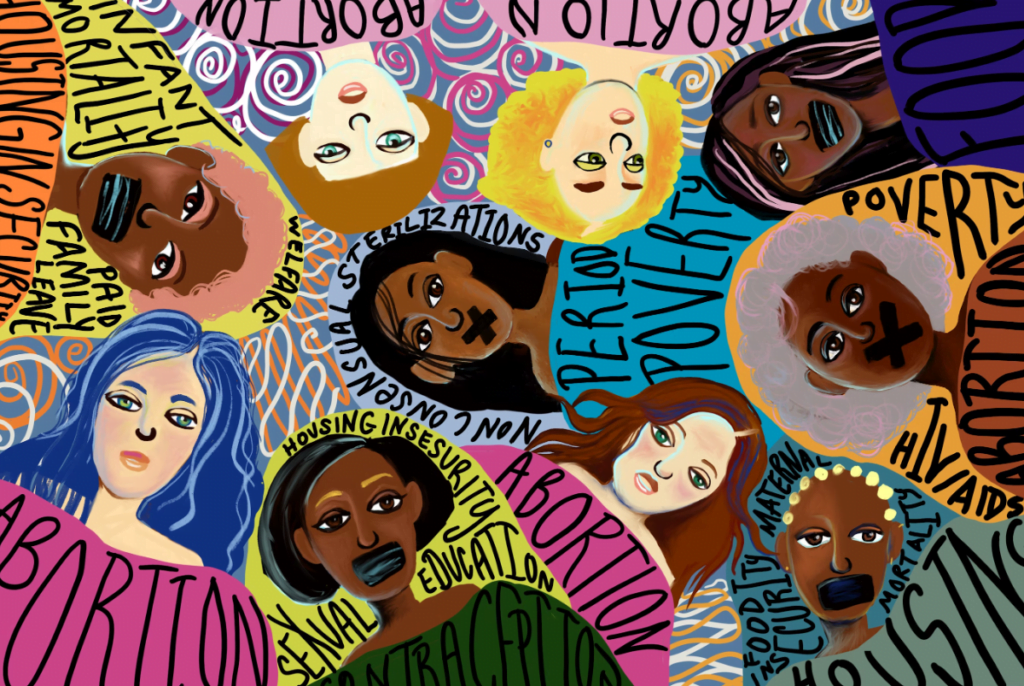The State of World Population Report is an annual publication released by the UNFPA, a prominent U.N. agency dedicated to creating a world where every pregnancy is desired, every childbirth is secure, and every young person’s potential is realised.
The latest report from the State of World Population in 2023 sheds light on the crucial significance of comprehending global population patterns and their far-reaching consequences on sexual and reproductive health and rights across the globe. Titled “8 Billion Lives, Infinite Possibilities: The Case for Rights and Choices,” this report underscores the need to prioritise these issues on a global scale. In light of the projected global population reaching 8 billion people in 2022, there is a pressing call to reshape the narratives surrounding population growth. It is crucial to re-evaluate our perspectives and approach this issue from a fresh standpoint.
The report seeks to highlight the detrimental impact of narratives that categorise populations as either ‘excessive‘ or ‘insufficient,’ with a particular focus on the potential harm inflicted upon women and girls, whose reproductive decisions are often at the centre of these discussions.
The report delves into different viewpoints regarding population and fertility rates, encompassing the increasing implementation of government policies aimed at altering, reducing, or sustaining fertility rates. A resilient and equitable future can be achieved through the implementation of policies that prioritise gender equality. These policies include parental leave, child tax credits, and universal access to sexual and reproductive health services.
Navigating population landscapes beyond numbers
The State of World Population Report (2023) delves into the different viewpoints surrounding population and fertility rates, shedding light on the increasing prevalence of government initiatives aimed at raising, reducing, or stabilising fertility rates. It emphasises the need to shift the way we talk about population growth and urges leaders to take into account women’s rights and the importance of allowing individuals to freely make reproductive choices.

The report highlights the significance of reframing narratives to promote a more inclusive and equitable approach to addressing population issues. The protection of this fundamental right has faced growing challenges globally due to various measures aimed at managing population growth, including the implementation of coercive contraception and forced sterilisation.
The report includes a series of policy recommendations that aim to promote gender equality and create a resilient and equitable future. These recommendations include the implementation of parental leave, child tax credits, and universal access to sexual and reproductive health services. By adopting these policies, society can take significant steps towards achieving a more inclusive and fair society.
Besides recommendations the report sheds light on the pressing issue of unmet need for contraception, revealing that a staggering 257 million women across the globe are unable to access safe and reliable contraception. It highlights the significance of guaranteeing access to contraceptive information and services, which encompasses well-trained health workers and the utilisation of high-quality WHO guidelines for safety and service delivery.
The UNFPA report is accompanied by UNFPA Data Portal, a data visualisation tool, to provide the most up-to-date global population data from UNFPA and other U.N. agencies. This tool is designed to accompany the report and enhance the understanding of the information presented. The online platform provides a comprehensive range of data on various demographic, social, and health indicators. These include statistics on fertility rate, maternal health, and family planning, as well as information on sexual and reproductive health, among others. Users have the option to filter data by country and topic, allowing for a more targeted analysis. The results can then be easily downloaded in either PDF or Excel format, providing convenience for further examination and exploration.
Toward equitable contraceptive access and reproductive health
Women’s health and well-being are significantly impacted by the limited availability of safe and dependable contraception. A recent study has highlighted the issue of unintended pregnancies among women who lack access to contraception. These pregnancies not only pose significant health risks for both mothers and children but also have far-reaching social implications, including the potential for stigma and discrimination.

According to research, unintended pregnancies can have a significant impact on the health of both pregnant women and fetuses. These pregnancies are associated with a higher risk of complications such as low birth weight, preterm birth, and neonatal mortality. A significant issue that women may encounter in managing their sexual and reproductive health is the lack of access to contraception. This can lead to various challenges, including menstrual disorders, endometriosis, and painful ovarian cysts.
The study has highlighted the disparities in family planning outcomes, particularly among minority and low-socioeconomic status (SES) women. These women face a higher risk of unintended pregnancies and the associated consequences, including unplanned births, abortions, and teen pregnancies.
Some studies have also highlighted the impact of patient preferences and behaviours on contraceptive use. Variations in knowledge and attitudes towards contraception and pregnancy, along with concerns about safety and potential side effects, have been identified as potential factors contributing to disparities in contraceptive use. Access to quality reproductive health services, including contraception, can be hindered by various factors within the health care system. These factors may include geographical location and financial constraints.
Women’s access to contraception can be influenced by various factors related to healthcare providers. These factors include biases among providers, insufficient knowledge about different contraceptive methods, and inadequate counselling and education provided to women seeking contraception. Women who lack access to contraception face a greater likelihood of experiencing unintended pregnancies, resulting in potential negative mental health consequences like stress, anxiety, and depression.
A comprehensive strategy is needed to overcome the obstacles to contraceptive access. This strategy should encompass various elements such as education, policy reforms, and interventions at the system level. By implementing these measures, we can ensure that women have the necessary means to obtain safe and dependable contraception, empowering them to make well-informed choices regarding their reproductive health.
The urgency of inclusion
The failure to address the demand for secure and dependable contraception has far-reaching consequences for society, especially for achieving gender equality. An important issue that needs to be addressed is the lack of inclusion of men in discussions surrounding contraception. This exclusion only serves to reinforce the damaging stereotype that birth control is solely the responsibility of women. Men are unable to have a say in their reproductive choices and lack control over the number and spacing of their offspring.

Unequal access to healthcare is a pressing issue that needs to be addressed. One aspect of this problem is the exclusion of men from cost-free birth control under the mandate. This exclusion hurts women, especially those who rely on male birth control methods such as condoms or their partner’s vasectomy. An analysis of the current exclusionary policies reveals a concerning trend that has a particularly adverse impact on young women and women of colour. This demographic, which already faces numerous barriers, is disproportionately affected by the lack of access to male contraceptives.
One aspect of this inequality is the limited access to contraception and safe abortion, which greatly hinders women’s ability to make informed decisions about their bodies and healthcare, particularly in matters of sex and reproductive health. The hindrance to achieving gender equality is evident. A concerning issue in the context of reproductive rights is the prevalence of stigma and disinformation perpetuated by certain groups opposed to abortion. The consequences of this are far-reaching, as it has led to the implementation of laws that not only criminalise abortion but also hinder the dissemination of accurate sexual health information. Consequently, a culture of shame and silence has been fostered, making it difficult for individuals to freely express and make decisions about their reproductive choices.
A critical issue in the global pursuit of gender equality is the lack of support for universal access to reproductive healthcare, which encompasses essential services such as abortion and contraception. Without addressing this crucial aspect, the sincerity of the world’s efforts to promote gender equality comes into question.
The State of World Population Report 2023 suggests implementing policies that prioritise gender equality and rights. These policies include parental leave programmes, child tax credits, initiatives to promote gender equality in the workplace, and ensuring universal access to sexual and reproductive health and rights. This set of policies provides a well-established framework that can generate economic benefits and create strong communities that can flourish regardless of shifts in global demographics.
About the author(s)
Insha Qayoom Shah is a Research Scholar from the Department of English, University of Kashmir pursuing her PhD on Female Revisionary Mythmaking: A Study of Select Novels. The areas of her interest include Feminism, Mythology and the Revisionary literature. She has presented four papers in different national and international conferences. She has also contributed chapters in three books dealing with the feminism and gender studies.





